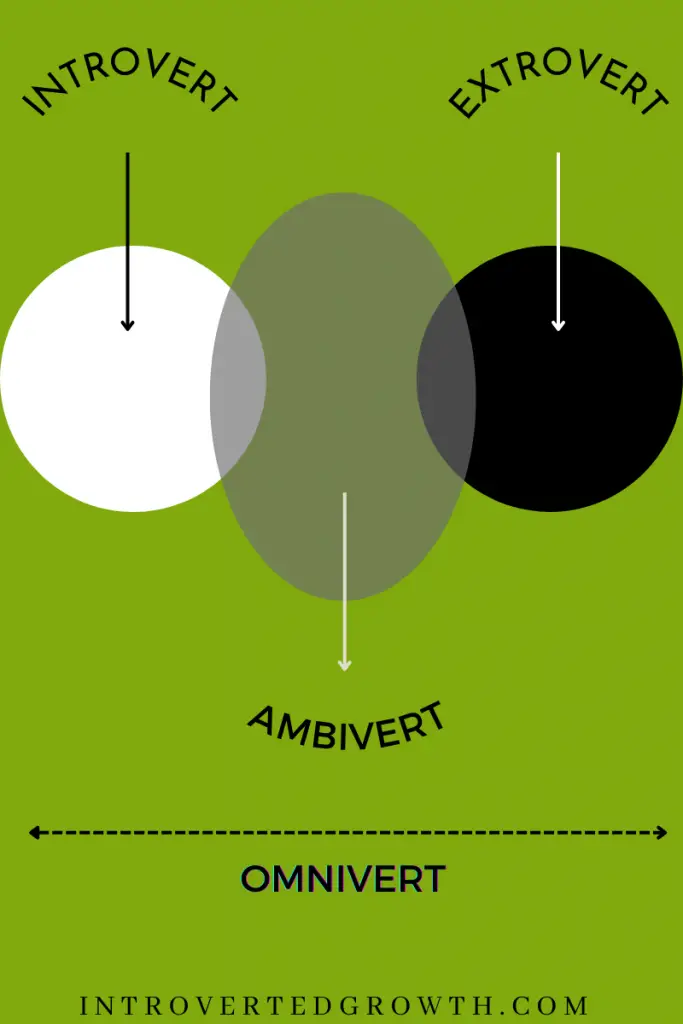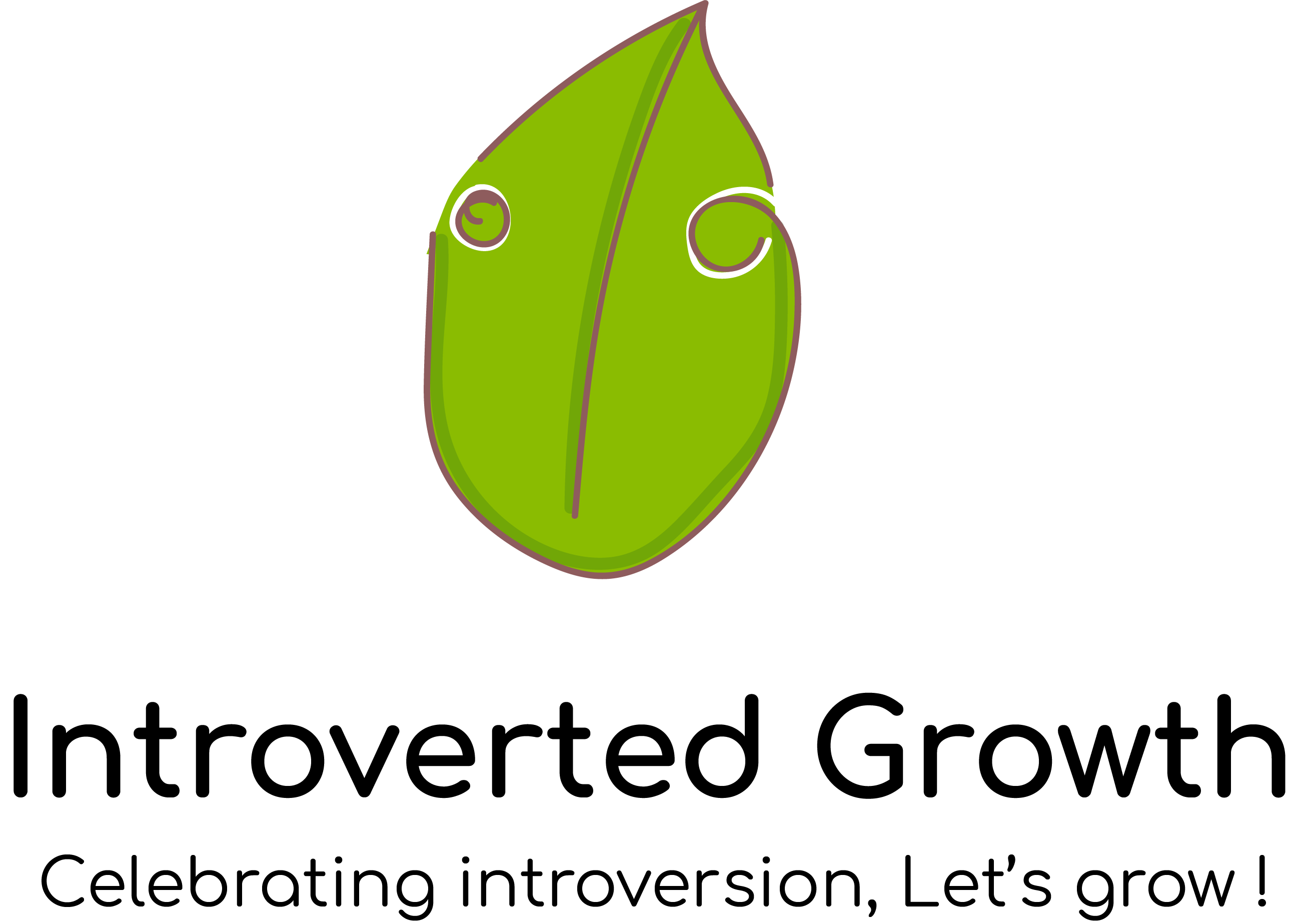Do you find that you tend to give contradicting answers every time you take the Myers-Brigg personality test? I mean one question you’re choosing the “you like to party hard” answer and the next one, you’re definitely going for the ” I don’t like crowdy places”.
Assuming you’ll be answering the test honestly, you’ll find that your choice of answers changes every other day you decide to retake it. hence, a different result every time.
And you’re left confused.
Haven’t taken the MBTI test yet? forget about it and consider answering these simple questions I’m giving you:
- Do you think you’re definitely not a total classic introvert nor a total extroverted one?
- Would you call yourself a moody person?
- Are you often puzzled by the repeatable change in how you perceive yourself? sometimes on a day to day basis.
- Do you think that people always misunderstand who you are or at least find their interpretation of you incomplete?
- Do you find it hard to understand who you are, and how you react to the world around you?
If your answer is a definite Yes to all the questions above, then you’re definitely an omnivert my friend.
Helpful Video: What is Omnivert| Explained in 2 min
Omnivert Meaning
The simple meaning behind the word omnivert would be someone who exhibits both introverted and extroverted traits but not at the same time.
Actually, this is what differentiates omniverts from ambiverts.
Ambiverts are a mix of both personality traits (introversion and extroversion) at once- that’s why they’re called outgoing introverts. while Omniverts are either classic introverts or extroverts depending on their internal state.
I should mention that the word omnivert is a slang and it’s not yet recognized by any respected dictionary.
I’m not sure who came up with the word first, but it has definitely taken a specific meaning around people in the MBTI Community.
I think they did right finding a term for thousands* of people who:
- Can’t be defined as classic introverts or extroverts.
- Have trouble balancing their introverted and extroverted traits at once, as ambiverts do.
- Can’t be defined as ambiverts because they either tend to be at the extremes of both personality traits.

Now to help you understand more what an omnivert personality is and decide if you’re actually one, here are 6 omnivert signs to look for in yourself (It’s like an omnivert test) to see if you’re omniverted based on how other omniverts defined themselves:
11 Omnivert Signs to Look For in Yourself
1. You’re introverted with extroverts and extroverted with introverts.
One of the main reasons why people often misunderstand your personality is that you display different personality traits with different people.
It’s like being with reserved and quiet people makes you outgoing and talkative while being with noisy and outgoing people makes you retreat into your introverted self so then you’re quieter and reserved.
The way you react to people has something to do with your internal state in this case.
When you’re with introverts, you’re less stimulated from the inside and that’s why you get to be extroverted while being with outgoing extroverts will get you easily stimulated internally and that is why you’ll retreat to quieter you to avoid overstimulation.
This brings us to the second sign
2. Your personality traits reflect your internal state.
This means that your external circumstances don’t get to affect your personality display of traits, rather you are introverted or extroverted depending on your internal circumstances.
You don’t get to consciously choose between being introverted or extroverted on any given day which makes you feel like your personality is out of control.
But this is only natural. Let me explain …
Being an omnivert means you get to be entirely introverted one day, then the next day you’re the omnivert crazy party animal.
The closest interpretation to this is that you need that introverted state to be internally ready for your extroverted self to emerge and vice versa.
More explanation…
Your brain is looking for dopamine, so you’ll internally have to balance between being understimulated ( extroverted )and overstimulated (introverted).
When you’re internally understimulated, you’ll be externally outgoing and talkative because your brain is looking for stimulation to get its dose of dopamine.
When you pass that preferred level of stimulation and things start getting out of hand ( hence internal overstimulation) you’ll naturally externally become introverted for your brain to get its dopamine levels back in check.
Here’s an article where I mention how dopamine relates to our display of introverted or extroverted traits.
Just to help you understand more.
3. You’re one giant ball of moodiness
One day you’re the life of the party. You dance, drink and flirt like nobody’s business. Doing this makes you confident! you can take the world!
Then the next day you don’t want to go out and meet anyone, you get anxious when the phone rings because you don’t want to pick it up and actually talk. You just want quiet and some time alone, another person can take the world!
Not understanding your personality well, this change of internal state will make you less confident in yourself and you’ll end up feeling bad about yourself for being like this when you’re just ‘unknowingly’ choosing to be yourself.
Because being introverted is just the other side of the omnivert coin and it should be accepted and enjoyed.
4. You get a different MBTI type every time you retake the test
An omnivert is an ‘off-center extrovert’ or an ‘off-center introvert’ and because of this, you get different types depending on how overstimulated or under-stimulated you are at the time of the test.
5. You’re either an extreme introvert or an extreme extrovert
Again depending on your internal state, you’re either totally an introvert or totally an extrovert. There’s no in between.
You don’t exhibit both classic traits at the same time, and this is what confuses the people around you. Being blatantly outgoing and brash one day and becoming unmistakenly reserved and quiet the next one.
That’s where the next sign comes in.
6. You’re perceived as unbalanced by the people around you
People you know would call you out for being too outgoing and friendly with them the other day then appearing withdrawn and isolated the next.
When in fact, It’s just your omniverted personality temperament reacting to your inner state.
People (and even you as an omnivert) will find it hard to deal with your apparent change in behavior and you’ll get judged for this. That why being an omnivert means having the most misunderstood personality temperament among the four (introvert, extrovert, ambivert, and omnivert)
The next 5 signs may be more relatable to a healthy omnivert rather than an unhealthy one.
7. Constantly adapting to the environment
You have the remarkable ability to adapt to any situation and modify your personality traits accordingly. You can be the center of attention one moment and then seamlessly shift into a more introverted demeanor the next.
This flexibility allows you to blend into your surroundings and cater to the demands of the situation. For example, if you’re at a noisy party, you might turn up the charm and be the life of the party, but if you’re in a quiet library, you could quickly retreat into your introverted self.
8. You Have a Unique perspective on life
Having experienced both introverted and extroverted tendencies. This broad understanding of the world and the people in it makes you a valuable asset in any situation, be it personal or professional. For example, you may have the ability to see things from different angles, which could lead to creative solutions to problems that others might miss.
9. You’re Strong Sense of Self
Despite being able to adapt and alter your personality, you have a strong sense of self and a deep understanding of who you are at your core. You’re confident in your abilities and are capable of staying true to yourself regardless of the situation and aware of it.
For instance, even in a room full of extroverts, you might still feel comfortable being your introverted self and not feel the need to conform.
10. You Have a Diverse set of Interests and Hobbies
You sure have the ability to switch between introverted and extroverted modes, which gives you a diverse range of interests and hobbies. You might enjoy peaceful and solitary activities one day and then be drawn to more social and interactive events the next.
This variety of interests that you’re blessed with keeps life interesting and exciting for you, and allows you to stay curious and engaged in different aspects of life.
11. You’re Unique Approach to Relationships
You have a distinct approach to relationships, being able to connect with both introverts and extroverts alike. You understand and appreciate the different personality types, making you a great listener and empathetic friend to those around you.
For example, you might have close friends who are introverted and enjoy quiet, one-on-one activities, but also have friends who are extroverted and love socializing in groups. Your ability to connect with both types of people is what makes you such a valuable friend and companion.
Getting the Best out of Your Omnivert Personality: 5 Ways to Thrive as an Omnivert
Accept Your Dual Nature
Being able to display both introverted and extroverted traits, depending on your internal state is not something to be afraid of. Embrace your unique personality and understand that this is not a flaw, but simply how you are wired.
Learn to Recognize Your Triggers
Pay attention to your internal state and the circumstances that cause you to switch between introversion and extroversion. This will help you understand what triggers your changes and how you can regulate your internal state.
Be Mindful
Mindfulness can help you stay present and aware of your internal state. This can also help you identify patterns in your behavior and emotions, which will give you more insight into your omniverted personality.
Engage in Activities that Balance Your Internal State
To maintain balance, find activities that stimulate you in moderation, such as exercise, meditation, or socializing. You can also engage in activities that allow you to recharge your batteries, like reading, writing, or spending time alone.
Communicate Your Needs
Let the people in your life know what you need and when you need it. This can help them understand your personality better and reduce the likelihood of misunderstandings.
When you need alone time, let others know, and when you’re ready for socialization, reach out and make plans. Being open and honest about your needs can help you form better relationships and create a supportive environment.
FAQs
Omnivert meaning
An omnivert is a person who is both an introvert and an extrovert. He can be unmistakably an introvert one day and an extrovert the other depending on his internal circumstances.
Is Omnivert and ambivert the same?
No, they’re not the same.
While both exhibit introverted and extroverted traits, ambivert are a mix of both at the same time, and omnivert are either one or the other at any given day, nothing in between.
Here’s an article that compares ambiverts vs. omniverts for better insight.
Are Omniverts rare?
There are definitely more ambiverts in the world because they share a perfect blend of introversion and extroversion, but omniverts are not rare in real life.
They’re just less likely to define themselves as omniverts in the first place.
Who is an Omnivert?
An omnivert is any person who exhibits traits of both introversion and extroversion, but the level varies depending on their internal state.
Is Omnivert Bipolar?
No, bipolar is actually an extreme form of unexplainable moodiness.
While people with Bipolar Disorder are very emotional and sometimes for no reason whatsoever, omniverts tend to get emotional due to their lack of personality understanding, and once that one is figured out, they can be really stable emotionally.
How Do You Know if You Are an Omnivert?
You can identify if you are an omnivert by looking for the signs that reflect your internal state, such as being introverted with introverts and extroverted with extroverts, having mood swings and being perceived as unbalanced by those around you. Also, taking an MBTI test may give different results depending on your current internal state and level of stimulation.
What is an example of an omnivert?
An example of an omnivert is a person who is outgoing and confident at a social gathering but can also be quiet and reserved in another setting. They can adapt to different personalities and environments and their behavior reflects their internal state.
What are the strengths of an omnivert?
The strengths of an omnivert include being adaptable, having the ability to understand different perspectives, having a high level of empathy, and being able to connect with both introverted and extroverted individuals.
What are the advantages of being an omnivert?
The advantages of being an omnivert include the ability to connect with a diverse group of people, having a well-rounded personality, being able to handle different types of social situations, and having strong interpersonal skills.
Can you be half introvert half extrovert?
Yes, being an ambivert means that you have both introverted and extroverted traits and exhibit them in different social situations. An omnivert is also considered to have both introverted and extroverted traits, but they may exhibit one more dominant trait depending on their internal state.
How do I know if I’m an ambivert or omnivert?
You can take an MBTI test to determine if you’re an ambivert or an omnivert. You can also observe your behavior in different social situations and see if you exhibit traits of both introverts and extroverts or if you lean towards one more than the other.
CONCLUSION
Did you find this article interesting? Don’t sit on the knowledge, share it with your friends and family!
Being an omnivert means having a misunderstood personality type, and because of this, people with this kind of temperament get judged and misunderstood.
But it’s just a matter of knowing who you are and accepting your true self. Once that’s done, everyone around you will naturally understand you better.
Thank you for reading!






